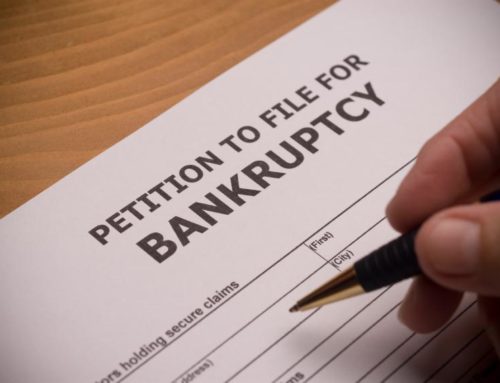Bankruptcy laws can be quite confusing, but they are not impossible to get familiar with. Personal bankruptcy, consumer bankruptcy, and business bankruptcy are among the most common terms you will encounter. This article will provide preliminary information on the different types of bankruptcy, which are appropriate for different individuals and circumstances.
Look into your unsecured and secured debt. If you do not know how to repay what you owe to your creditor or if you are running out of debt settlement options, try to see what will happen if you file for bankruptcy. People considering bankruptcy should undergo credit counseling and do preliminary consultation with a reliable bankruptcy attorney. This will help you decide if filing for bankruptcy is best for you.
What is an automatic stay?
This is essentially bankruptcy protection from debt collectors. An automatic stay, which takes effect after filing a bankruptcy petition, can stop foreclosure, wage garnishment, and even getting sued. For some, this is one of the advantages of the bankruptcy process. Essentially, after you file bankruptcy, your creditors are ordered to stop harassing (or even contacting) you for repayment.
What is a bankruptcy discharge?
This is the court-ordered forgiveness of certain types of debt, which takes place after you declare bankruptcy. Your credit card debt, medical debt, certain tax debt, and other unsecured debt will likely be forgiven or discharged. In contrast, student loans, criminal fines, and penalties, alimony and child support, and other types of tax debt are likely not part of your would-be discharged debt.
What if, instead of choosing to declare bankruptcy, I simply do nothing?
If you want to wipe out your debt problems but cannot pay off what is owed, file a bankruptcy petition. Despite staying on your credit report for years, a bankruptcy filing is a lot better than simply doing nothing. Without a bankruptcy petition, you can be harassed by individual creditors or their debt collection agencies. If you cannot pay back, you may be sued and your assets will be left unprotected.
What are the two types of bankruptcy?
 Except for those with specific needs, most bankrupt debtors decide on filing Chapter 7 (liquidation) or Chapter 13 (reorganization) bankruptcy cases.
Except for those with specific needs, most bankrupt debtors decide on filing Chapter 7 (liquidation) or Chapter 13 (reorganization) bankruptcy cases.
What are the advantages if I file for bankruptcy under Chapter 13?
Under the bankruptcy code, you are protected from creditors while you settle your outstanding debt through a repayment plan, which often runs for three or five years. This is also known as home-saver bankruptcy because on top of debt relief, it prevents foreclosure. In some instances, the bankruptcy court can even reduce the total debt to be repaid to specific creditors.
What if I file a Chapter 7?
Chapter 7 bankruptcies are often less expensive and complicated. Your bankruptcy lawyer can help you wipe out your unpaid unsecured debt in as fast as three months. This is also known as a fresh start bankruptcy because through it, you can get out of your debts without repaying unsecured creditors. While your non-exempt assets will be liquidated, most of your personal property will be considered exempt.
Are bankruptcy filings better than debt consolidation?
A debtor who will have lower monthly payments (compared to a Bankruptcy Chapter 13 payment plan) in five years might be better off with debt consolidation. In contrast, those who qualify for a Chapter 7 bankruptcy proceeding will likely benefit more from a declaration of bankruptcy. Only those with very specific plans and circumstances should choose debt consolidation over it. Bankruptcy attorneys can explain these in more detail.
Bankruptcy forms and paperwork must be accomplished very carefully. If you are bankrupt and you need help understanding bankruptcy law, call us now. Our bankruptcy law firm can provide you assistance on filing bankruptcy, addressing creditor harassment, building credit after bankruptcy,. Contact our competent bankruptcy lawyers at Thomas E. McIntire and Associates, LC to learn more.





